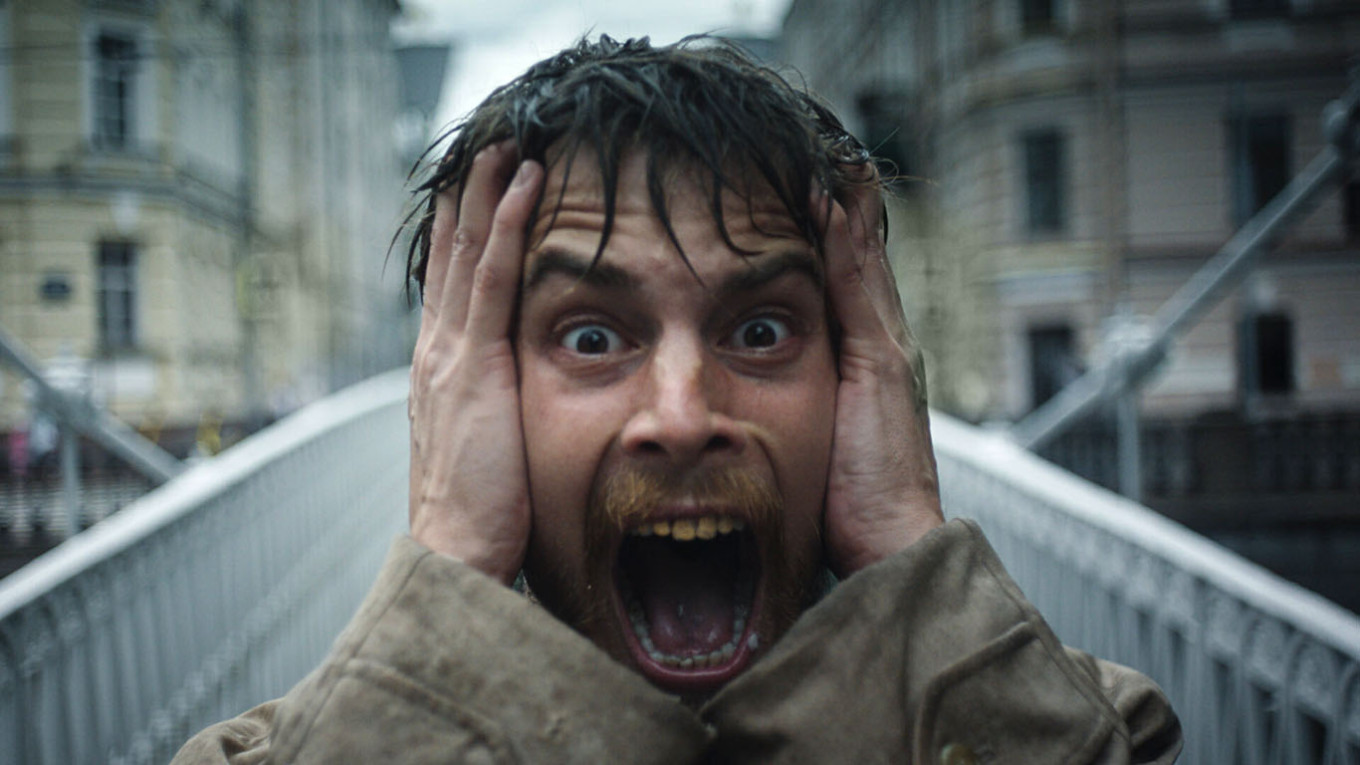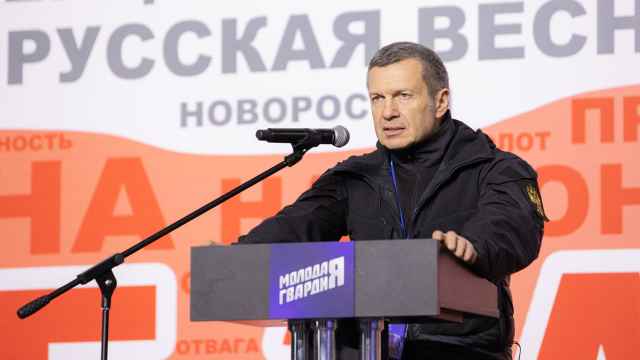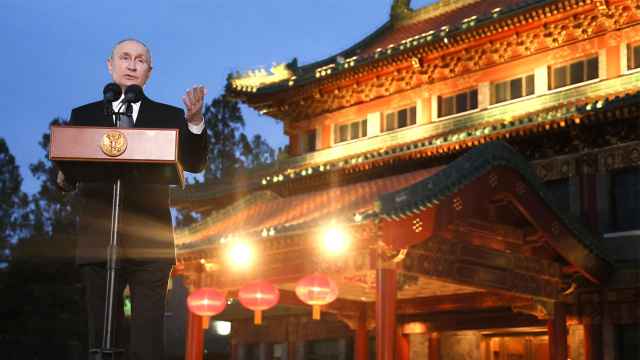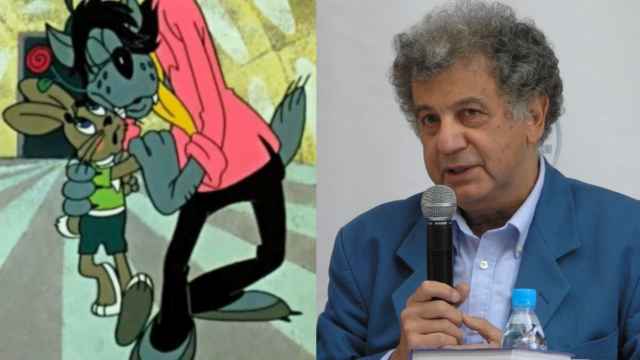A somewhat unkempt young man runs through the nighttime streets and canals of St. Petersburg, eventually finding himself in a massive supermarket. Caught by security for drinking kefir without paying, he is saved by a poltergeist-like intervention — courtesy of the devil, with whom he has been conversing while roaming the aisles.
If this doesn’t immediately strike you as the opening of the beloved Russian classic “Crime and Punishment,” you’re not alone. The young man is, of course, Rodion Raskolnikov, played by the ubiquitous Ivan Yankovskiy, scion of a famous acting dynasty, best known for his role in last year’s hit “The Boy's Word: Blood on the Asphalt.”
This latest adaptation of Fyodor Dostoevsky’s novel, directed by Vladimir Mirzoev, has received mixed reviews, with many viewers criticizing the decision to transplant the story to the present day. Still, the miniseries succeeds in some ways as a visually striking reimagining of the famed tale, infused with a dash of the supernatural.
Produced by the popular streaming service Kinopoisk.ru, “Crime and Punishment” had its release date postponed three times. It was finally released in two waves, with the first four episodes dropping in early November 2024 and the rest at the end of the month. Critics speculated on exactly what the in-house censors were trying to cut — LGBTQ+ themes, allusions to the war in Ukraine, or something else entirely.
Unlike the novel, most of the action takes place on the streets of St. Petersburg rather than in the interiors of various apartments, restaurants and offices. Mirzoev channels the stereotypical “gloomy” St. Petersburg scenery, which corresponds well to the fevered consciousness of Raskolnikov.
Many viewers argue, rightly, that the novel’s central premise — about a desperate young man who murders an elderly pawnbroker to improve his financial situation — feels implausible in today’s world. After all, most people in need turn to microloans, and ubiquitous surveillance cameras make it nearly impossible to get away with crimes like Raskolnikov’s.
The presence of the devil — listed in the credits as “Shadow” — is one of the most striking departures from the novel. Shadow, played by Boris Khvoshnyansky — who bears a striking resemblance to Robert Downey Jr. — accompanies Raskolnikov almost constantly.
The idea of Shadow is borrowed from another famous Dostoevsky novel, “The Brothers Karamazov,” where Ivan encounters a devil (chert) — a sinister double of himself — in his nightmares. However, the Shadow is not a double but an independent actor, speaking not just to Raskolnikov but to other characters as well.
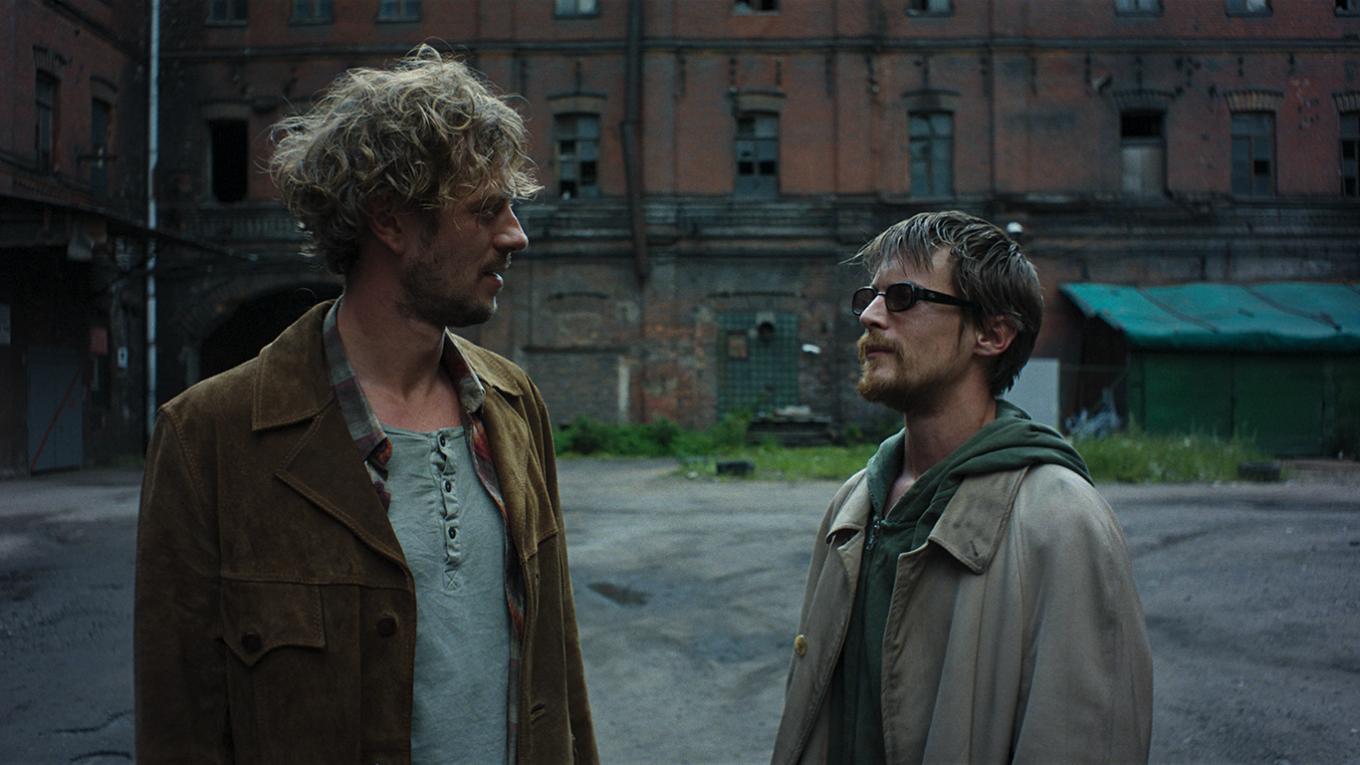
Another key difference is the attention given to the storyline involving Raskolnikov’s sister, Dunya (played by popular actress Lyubov Aksyonova), and the Svidrigailovs. From the first episode, we’re treated to a string of lavish scenes set in a garish palace located somewhere the show labels “Western Siberia.” Svidrigailov’s wife, Marfa Petrovna, is played by Yuliya Snigir, known for her role in “The Master and Margarita.” In a playful jab at opulence, Marfa is pictured in one scene polishing an Hermès bag with hand cream.
Vladislav Abashin is perfect as the unnervingly sinister Arkady Svidrigailov. His relationship with Dunya is considerably more passionate than in the novel, and there are also hints at an affair between Dunya and Marfa Petrovna, which some speculate may have contributed to the series’ delayed release. Unlike in the novel, the show leaves no doubt that Svidrigailov killed his wife. When he meets Raskolnikov, the Shadow all but disappears as Svidrigailov assumes the devil’s role.
Svidrigailov isn’t the only character to receive an “update.” Razumikhin, Raskolnikov’s fellow student and friend, is depicted as a heavy drinker and a womanizer, and is the one with whom Sonya Marmeladova loses her virginity.
In general, the series contains far more sexual content than the novel, which is virtually devoid of sex. There’s evidence that one of the earlier drafts of the novel included a love scene involving Raskolnikov, but the publisher cut it. In the series, Marmeladova sleeps not only with Razumikhin but also with Luzhin — Dunya’s fiancé — and Zametov, whose role is significantly expanded compared to the novel.
Beyond the presence of The Shadow, the series features other supernatural elements. For example, Sonya has the gift of clairvoyance. Surreal scenes of St. Petersburg parties — resembling avant-garde art performances — exude a distinctly Lynchian vibe. A scene featuring twins also evokes Kubrick’s “The Shining.”
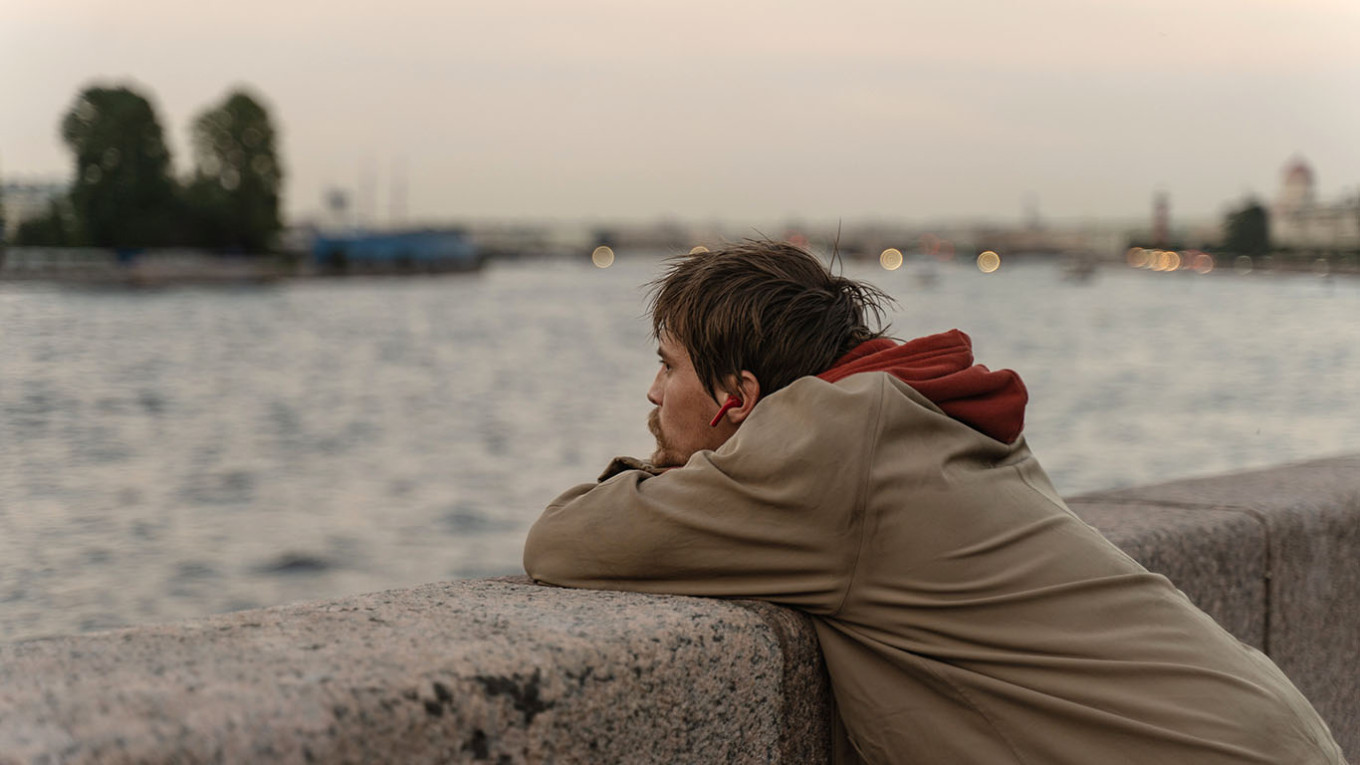
This is no surprise, considering that “The Swamp,” Vladimir Mirzoev’s previous foray into television, was a paranormal thriller with elements of horror. Written by Dmitry Glukhovsky — who was convicted in absentia and sentenced to eight years in prison — and starring both Ivan Yankovskiy and Tikhon Zhiznevskiy, “The Swamp” also received mixed reviews yet developed a cult following.
Mirzoev has always been more of a theater director than a filmmaker. His theatrical roots are most visible in Sonya Marmeladova’s transformation into a sex worker. Her “fall” is underscored by a change of the actress — from Diana Yenakayeva to Alyona Mikhaylova, the star of Kirill Serebrennikov’s “Tchaikovsky’s Wife.” The transformation works quite effectively, making viewers question for a moment: Is this even the same person?
Other theatrical techniques Mirzoev employs include direct quotes from “Crime and Punishment” that feel oddly incongruous in a 21st-century setting. But if you imagine yourself in a Moscow theater, watching a radical new interpretation of a classic — it feels exactly right. This adaptation may not always work as a faithful update of Dostoevsky’s novel, but as a radical theatrical experiment, it succeeds on its own terms.
A Message from The Moscow Times:
Dear readers,
We are facing unprecedented challenges. Russia's Prosecutor General's Office has designated The Moscow Times as an "undesirable" organization, criminalizing our work and putting our staff at risk of prosecution. This follows our earlier unjust labeling as a "foreign agent."
These actions are direct attempts to silence independent journalism in Russia. The authorities claim our work "discredits the decisions of the Russian leadership." We see things differently: we strive to provide accurate, unbiased reporting on Russia.
We, the journalists of The Moscow Times, refuse to be silenced. But to continue our work, we need your help.
Your support, no matter how small, makes a world of difference. If you can, please support us monthly starting from just $2. It's quick to set up, and every contribution makes a significant impact.
By supporting The Moscow Times, you're defending open, independent journalism in the face of repression. Thank you for standing with us.
Remind me later.


